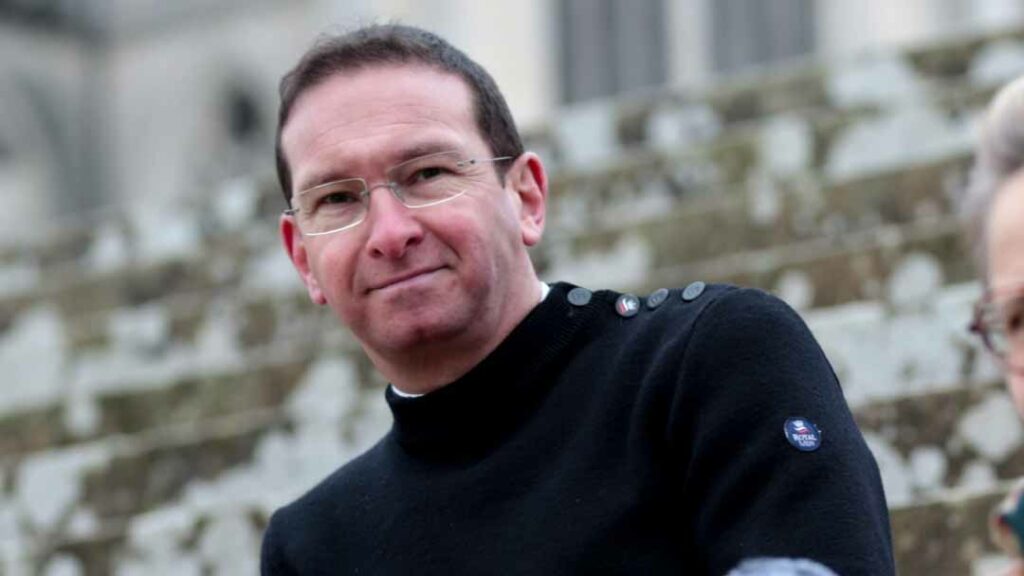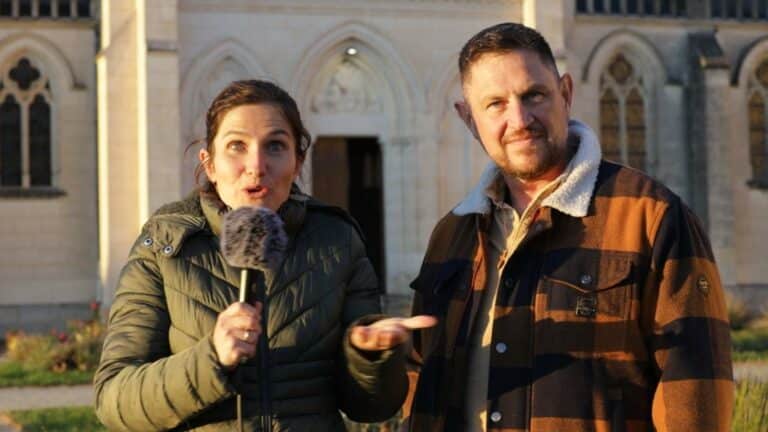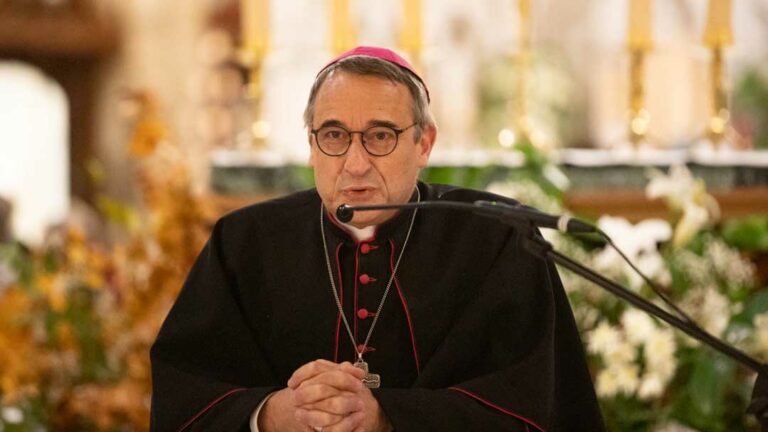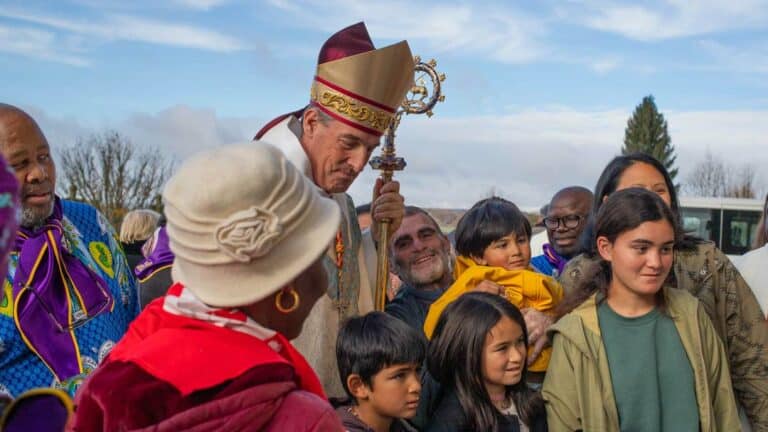Death is merciless. It forces us to face the wall of the absence of a person who used to be part of our life, sometimes for many many years. We can no longer hear them or hug them. It is no longer possible to ask for their advice, to give them love or receive love from them. Apparently, all the links are severed. Is that so certain? We have asked don Patrick Pinard-Legry, a chaplain at the Shrine, to explain how the ties between the dead and the living work. This interview was for the program Sanctuaire Normands, broadcast on RCF- Orne-Calvados-Manche.
Quite often at funerals a text is read that tells us that the deceased “has gone into the room next door.” What do you think of it?
This text is an attempt to reassure us by telling us something about home. In other words, that death does not bring an end to everything. On the other hand, it makes us feel that death is very simple and natural, and not so tragic after all. Now, death remains a mystery. Death is something violent. As a result, quite often, when I prepare a funeral service with families who would like to include that text, it elicits some discussion.
Death is not “nothing” and cannot be reduced to just “going into the room next door.” That is the reason why the Church makes sure to be nearby by taking the time to accomplish the funeral rites, to pray around the body and go back to the cimetary afterwards.
On the other had, to say that the person “has gone” implies that they will come back. As a matter of fact, the deceased person does more than just going. There is a break which is not mentioned in the text.
Do the deceased hear us when we talk to them?
In eternity there is some hearing but it is different to the way we hear on earth. This is still an open question and there is some disagreement between theologians. In any case, according to the Church, there is an exchange of spiritual goods between the living and the dead (Catechism of the Catholic Church No 958) and we are encouraged to pray for our deceased. Rather than seeking to find out what they can hear we should try to create a link with them through prayer.
Are all the links severed with a deceased loved one?
A very real link remains. It is the bond of the love that ties us and that we grew on this earth. Fueled by the life with the Lord, this love became a life of charity. Charity does remain after death. As Saint Paul writes in the Epistle to Corinthians 1 Co 13: “There is faith, hope and charity. However, the greatest of all three is charity.” Such charity does not go away, even after death. It keeps the bounds with our deceased after death.
How can the carnal ties we had with our deceased be left behind to keep just the bond of charity?
Time, which was created by God, will help us to gradually access this dimension. We should not hurry. Let’s take the time to experience mourning. It may take months, years perhaps, which is normal. For instance, parents who lost their child are unable to overcome grief in just a few months. It’s impossible! Establishing a new relationship with our deceased is like a relationship between parents and children or between spouses, it a long processs! And it tales time, sometimes years even.
In the case of parents who lost their child, is the bound changed since parents can no longer look after the child on earth?
Parenthood is changed because physical, carnal presence does not exist anymore. Parents can no longer hold their child tight, kiss them, help them grow. On the other hand, through the link of charity, they can intercede for the child, even ask their help to enable them to grow in charity too.
Can the bond with the deceased be toxic for the living? For example, can a dead person hold a grudge against us or cast a spell on us?
It is possible if the person had made a pact with the devils to tempt us. However if they are in hell, they no longer have any power on us. And if they are in purgatory, they can only wish us well because they are driven by charity and because they are meant to God’s glory for eternity.
Even if there has been some nasty things on this earth, if there have been family quarrels or difficult relationships, everything can be transformed by charity. And if someone has wished us ill, let us redouble our prayers for them, and this will be transformed into good. Offering Masses for them, praying the rosary: these are the means given by the Church to make this charity grow. And cut short anything that might have been complicated on earth.
Conversely, can a deceased person wish us well?
If that person is in purgatory or in heaven, of course they can wish us well through that bond of charity, or communion, which ties us. As taught by the Catechism of Catholic Church, our prayer triggers their intercession. Therefore if we pray for them, even if they are still in Purgatory, they will be able to wish us well. If they are already in Heaven, they already wish us well, praying for us. This is the part of all saints, who pray for us spontaneously and directly.
Are the deceased our guardian angels?
I don’t like that phrase, because although we’ll be “like angels”, we will not be angels. There is a difference. Angels have a well-defined role in creation and in God’s plan. In that way, the saints are not our guardian angels, they are people whose intercession we can count on.
On the other hand, we need our guardian angels. To say that our deceased replace our guardian angels would mean that we no longer need them. But we need our guardian angels, we need to pray them, and we also need our deceased.




